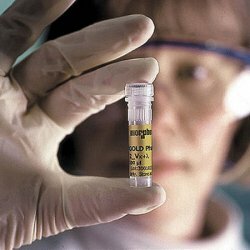Dysentery( shigellosis): symptoms and treatment
 Dysentery( shigellosis) - an intestinal infectious disease, which is characterized by bowel damage( mainly the distal part of the colon).The disease is widespread all over the world, according to statistics every year shigellosis affects about 80 million people.
Dysentery( shigellosis) - an intestinal infectious disease, which is characterized by bowel damage( mainly the distal part of the colon).The disease is widespread all over the world, according to statistics every year shigellosis affects about 80 million people.
Causes of
The causative agent of dysentery is the bacteria of the genus Shigella.There are about fifty serovars of bacteria of this genus, but often the culprits of dysentery are Shigella Flexner, Sonne and Grigoriev-Shigi.
The source of the infection is an infected person.It can be either a person with an acute or latent form of the disease, or a carrier.The mechanism of transmission of dysentery is fecal-oral, which can be realized by water, food or contact-household ways.Thus, a person can get sick with shigellosis when using contaminated water, food, through contaminated household items, hands.Most often, shigellosis affects children, especially preschool children, because they do not have hygienic skills.If a child with dysentery appears in the kindergarten - bacteria from it fall on household items, toys that other children take in their hands, and then pull into their mouths.

The peculiarity of dysentery is the fact that the bacteria are localized mainly in the distal part of the large intestine.Shigella isolated toxins that exert a destructive effect on the intestinal wall.
Bowel infection occurs in four stages:
- Catarrhal inflammation( edema, hyperemia of the mucosa);
- Fibrinozno-necrotic inflammation;
- Formation of ulcerative defects;
- Healing of ulcers.
Symptoms of dysentery
The duration of the incubation period varies from one to seven days, but this interval can sometimes be shortened to several hours.Often the incubation period is two to three days.
Features of the clinical picture are due to the nature of the pathogen, the variant of the flow and the degree of severity.
There are such variants of dysentery:
- Colitis;
- Gastroenterocolytic;
- Gastroenteric.
Collation variant
This variant of dysentery is called typical.The disease begins suddenly, the body temperature rises, the person sharply feels weakness, weakness, headache, chills.After a couple of hours, the patient begins to worry about abdominal pain.In the beginning, pains spread throughout the abdomen and blunt character, and then concentrate in the lower abdomen, especially the left, with the pain becoming cramping.Pain is worse with defecation.Desires for defecation are often false, accompanied by painful and drawing pains in the rectum - this symptom is called tenesmus.
When the doctor palpates the patient's stomach, he manages to find that the colon is strained, spasmodic, especially the sigmoid part of the intestine.During palpation, the patient may have more urges to defecate.
Another symptom of dysentery is diarrhea, the stool frequency can reach twenty to thirty times a day.Defecation often does not bring the patient a sense of relief.
The chair at the beginning of the disease is plentiful, gradually becoming more and more liquid, its quantity decreases.In the feces there are impurities of mucus, less often of blood.A chair can consist of only a small amount of mucus and blood - this symptom is called a "rectal spitting".
Duration of swelling of the disease from one to two to eight days.After that, the symptoms of an illness gradually fade.
Gastroenterocolitic variant
 Characterized by a short incubation period and a sudden onset.This variant of dysentery is characterized not only by the intestine( enterocolitis), but also by the stomach( gastritis).The disease also begins with fever, chills, weakness.But soon there is nausea, repeated vomiting and diffuse pain in the abdomen.Then there is diarrhea, abundant watery discharge without pathological impurities.The chair becomes less abundant, it can detect impurities of mucus, blood veins.
Characterized by a short incubation period and a sudden onset.This variant of dysentery is characterized not only by the intestine( enterocolitis), but also by the stomach( gastritis).The disease also begins with fever, chills, weakness.But soon there is nausea, repeated vomiting and diffuse pain in the abdomen.Then there is diarrhea, abundant watery discharge without pathological impurities.The chair becomes less abundant, it can detect impurities of mucus, blood veins.
On the background of dehydration, the patient may complain of dry mouth, thirst, dizziness when trying to get out of bed.
In general, this variant of dysentery is of a short-term nature: usually the disease lasts no more than two to three days.
The gastroenteric variant of shigellosis proceeds in a similar way with the initial period of the gastroenterocolitis variant.But the main difference is the absence of signs of colitis.
Diagnosis of shigellosis
To confirm the diagnosis, the doctor will need the results of the studies. The patient needs to undergo such studies as:
-
 Bacteriological study;
Bacteriological study; - Serological study( RNGA);
- Express diagnostics( ELISA, RIF, PCR);
- Coprological examination( mucus, erythrocytes, a large number of leukocytes, altered epithelial cells are detected);
- Clinical blood test( increase in leukocyte count, acceleration of ESR);
- Recto-manoscopy( swelling, hyperemia, ulcerative defects in the mucosa of the large intestine, intestinal spasm).
Treatment of dysentery
 The basis for the therapy of dysentery is the administration of etiotropic agents.Thus, in the treatment of patients with mild severity, nitrofurans( furazolidone) and quinolines( chloroquinaldone) are prescribed.For the treatment of patients with moderate severity, medications of the sulfamethoxazole group( bactrim), fluoroquinolone derivatives( ciprofloxacin, ofloxacin) are prescribed.In severe disease, the best effect can be achieved by the appointment of a combination of parenteral fluoroquinolones with aminoglycosides( eg, gentamycin), cephalosporins( ceftriaxone).
The basis for the therapy of dysentery is the administration of etiotropic agents.Thus, in the treatment of patients with mild severity, nitrofurans( furazolidone) and quinolines( chloroquinaldone) are prescribed.For the treatment of patients with moderate severity, medications of the sulfamethoxazole group( bactrim), fluoroquinolone derivatives( ciprofloxacin, ofloxacin) are prescribed.In severe disease, the best effect can be achieved by the appointment of a combination of parenteral fluoroquinolones with aminoglycosides( eg, gentamycin), cephalosporins( ceftriaxone).
The patient is also required to prescribe detoxifying agents( Ringer's solution, Trisol, "Acesol").In severe course, colloidal solutions are also prescribed( eg haemodesis, rheopolyglucin).
After the active course of treatment in the presence of signs of dysbiosis, the doctor can prescribe to the patient drugs normalizing the intestinal flora( lactobacillus, bifidumbacterium).
Recommended to read:Note: dysentery, like other intestinal infections, can occur in a latent form.In this case, the symptoms of ailment are weakly expressed and do not bring a person great discomfort.As a rule, a person does not consult a doctor.So, the patient, without knowing it himself, is the source of infection.Therefore, if there are signs of intestinal infections, you should always consult a doctor.

The patient should be discharged no earlier than three days after stopping diarrhea and normalizing the temperature.Before discharge two days after the end of antibiotic therapy, a pot of feces is produced.Representatives of the decree( employees of the food industry, catering, food trade, preschool and school institutions, public services and others) are examined three times, and the order of their admission to work is regulated by a separate order.
Grigorova Valeria, medical reviewer



